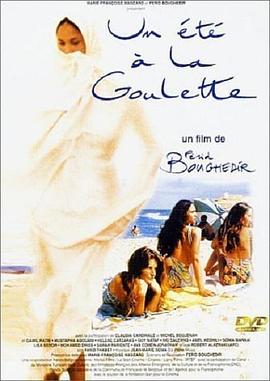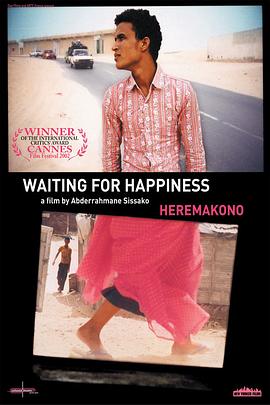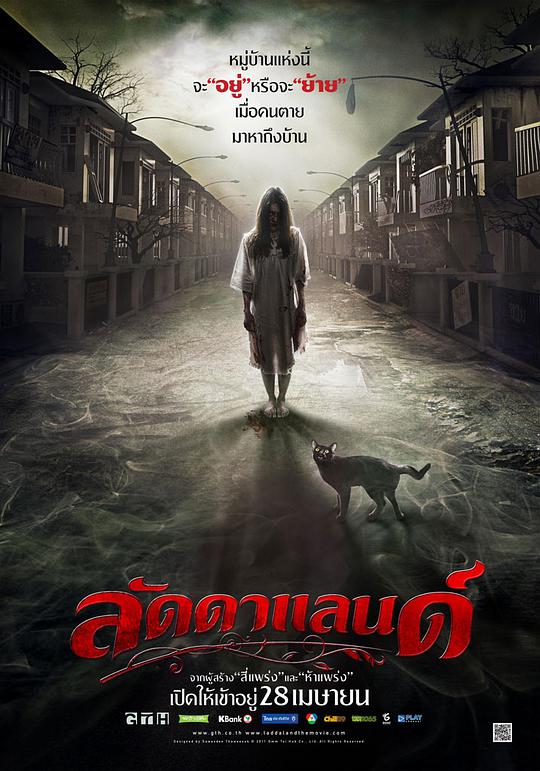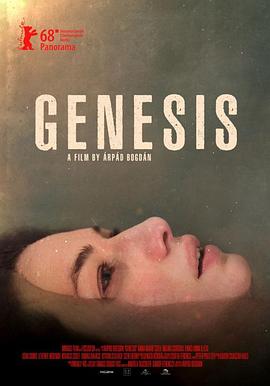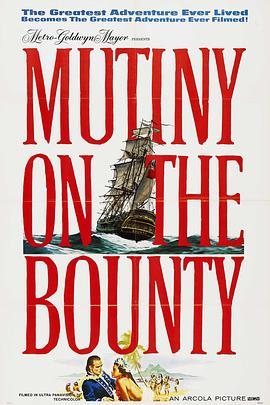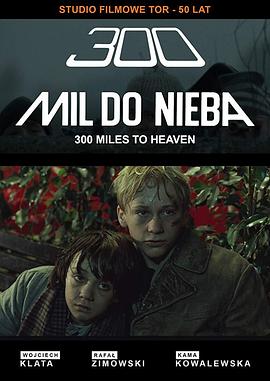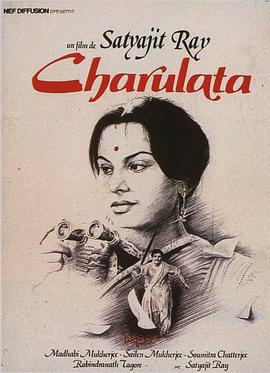-
备注:已完结
类型:剧情片
主演:Khatra Ould Abder Kader Maata Ould
导演:阿伯德拉马纳·希萨柯
语言:法语
年代:未知
简介:获奖:2003年布宜诺斯艾利斯独立电影节最佳电影 2003年戛纳影展法国文化奖年度最佳外国导演 2003年戛纳影展“一种注目”最佳电影 介绍:在广阔的毛里塔尼亚沙漠的边缘座落着一个叫Nouadhibou的临海小镇。在那儿,17岁的阿布达拉在移居欧洲前准备去探望母亲。这位忧郁的年轻人觉得自己在家乡格格不入;不会说当地语言;躲避乡村的风俗习惯和传统节日;相比传统服饰,他更喜欢最新的欧洲款式。但是阿布达拉还是融入到这片陌生的环境和当地居民的生活当中。他遇上忧伤而魅惑的娜娜;年长的巧手工玛塔;还有浓眉大眼的乐观小孤儿卡特拉。导演这部充满诗意,摄影优美的电影细致地观察并尖锐地对发展和传统之间的冲突做出尖锐的分析。
-
备注:已完结
类型:战争片
主演:Andrzej Banaszewski Beata Barszczew
导演:斯坦尼斯拉夫·罗泽维格
语言:其它
年代:未知
简介: In 1961, Stanislaw Rozewicz created the novella film "Birth Certificate" in cooperation with his brother, Taduesz Rozewicz as screenwriter. Such brother tandems are rare in the history of film but aside from family ties, Stanislaw (born in 1924) and Taduesz (born in 1921) were mutually bound by their love for the cinema. They were born and grew up in Radomsk, a small town which had "its madmen and its saints" and most importanly, the "Kinema" cinema, as Stanislaw recalls: for him cinema is "heaven, the whole world, enchantment". Tadeusz says he considers cinema both a charming market stall and a mysterious temple. "All this savage land has always attracted and fascinated me," he says. "I am devoured by cinema and I devour cinema; I'm a cinema eater." But Taduesz Rozewicz, an eminent writer, admits this unique form of cooperation was a problem to him: "It is the presence of the other person not only in the process of writing, but at its very core, which is inserperable for me from absolute solitude." Some scenes the brothers wrote together; others were created by the writer himself, following discussions with the director. But from the perspective of time, it is "Birth Certificate", rather than "Echo" or "The Wicked Gate", that Taduesz describes as his most intimate film. This is understandable. The tradgey from September 1939 in Poland was for the Rozewicz brothers their personal "birth certificate". When working on the film, the director said "This time it is all about shaking off, getting rid of the psychological burden which the war was for all of us. ... Cooperation with my brother was in this case easier, as we share many war memories. We wanted to show to adult viewers a picture of war as seen by a child. ... In reality, it is the adults who created the real world of massacres. Children beheld the horrors coming back to life, exhumed from underneath the ground, overwhelming the earth." The principle of composition of "Birth Certificate" is not obvious. When watching a novella film, we tend to think in terms of traditional theatre. We expect that a miniature story will finish with a sharp point; the three film novellas in Rozewicz's work lack this feature. We do not know what will be happen to the boy making his alone through the forest towards the end of "On the Road". We do not know whether in "Letter from the Camp", the help offered by the small heroes to a Soviet prisoner will rescue him from the unknown fate of his compatriots. The fate of the Jewish girl from "Drop of Blood" is also unclear. Will she keep her new impersonation as "Marysia Malinowska"? Or will the Nazis make her into a representative of the "Nordic race"? Those questions were asked by the director for a reason. He preceived war as chaos and perdition, and not as linear history that could be reflected in a plot. Although "Birth Certificate" is saturated with moral content, it does not aim to be a morality play. But with the immense pressure of reality, no varient of fate should be excluded. This approached can be compared wth Krzysztof Kieslowski's "Blind Chance" 25 years later, which pictured dramatic choices of a different era. The film novella "On the Road" has a very sparing plot, but it drew special attention of the reviewers. The ominating overtone of the war films created by the Polish Film School at that time should be kept in mind. Mainly owing to Wajda, those films dealt with romantic heritage. They were permeated with pathos, bitterness, and irony. Rozewicz is an extraordinary artist. When narrating a story about a boy lost in a war zone, carrying some documents from the regiment office as if they were a treasure, the narrator in "On the Road" discovers rough prose where one should find poetry. And suddenly, the irrational touches this rather tame world. The boy, who until that moment resembled a Polish version of the Good Soldier Schweik, sets off, like Don Quixote, for his first and last battle. A critic described it as "an absurd gesture and someone else could surely use it to criticise the Polish style of dying. ... But the Rozewicz brothers do no accuse: they only compose an elegy for the picturesque peasant-soldier, probably the most important veteran of the Polish war of 1939-1945." "Birth Certificate" is not a lofty statement about national imponderabilia. The film reveals a plebeian perspective which Aleksander Jackieqicz once contrasted with those "lyrical lamentations" inherent in the Kordian tradition. However, a historical overview of Rozewicz's work shows that the distinctive style does not signify a fundamental difference in illustrating the Polish September. Just as the memorable scene from Wajda's "Lotna" was in fact an expression of desperation and distress, the same emotions permeate the final scene of "Birth Certificate". These are not ideological concepts, though once described as such and fervently debated, but rather psychological creations. In this specific case, observes Witold Zalewski, it is not about manifesting knightly pride, but about a gesture of a simple man who does not agree to be enslaved. The novella "Drop of Blood" is, with Aleksander Ford's "Border Street", one of the first narrations of the fate of the Polish Jews during the Nazi occupation. The story about a girl literally looking for her place on earth has a dramatic dimension. Especially in the age of today's journalistic disputes, often manipulative, lacking in empathy and imbued with bad will, Rozewicz's story from the past shocks with its authenticity. The small herione of the story is the only one who survives a German raid on her family home. Physical survial does not, however, mean a return to normality. Her frightened departure from the rubbish dump that was her hideout lead her to a ruined apartment. Her walk around it is painful because still fresh signs of life are mixed with evidence of annihilation. Help is needed, but Mirka does not know anyone in the outside world. Her subsequent attempts express the state of the fugitive's spirits - from hope and faith, moving to doubt, a sense of oppression, and thickening fear, and finally to despair. At the same time, the Jewish girl's search for refuge resembles the state of Polish society. The appearance of Mirka results in confusion, and later, trouble. This was already signalled by Rozewicz in an exceptional scene from "Letter from the Camp" in which the boy's neighbour, seeing a fugitive Russian soldier, retreats immediately, admitting that "Now, people worry only about themselves." Such embarassing excuses mask fear. During the occupation, no one feels safe. Neither social status not the aegis of a charity organisation protects against repression. We see the potential guardians of Mirka passing her back and forth among themselves. These are friendly hands but they cannot offer strong support. The story takes place on that thin line between solidarity and heroism. Solidarity arises spontaneously, but only some are capable of heroism. Help for the girl does not always result from compassion; sometimes it is based on past relations and personal ties (a neighbour of the doctor takes in the fugitive for a few days because of past friendship). Rozewicz portrays all of this in a subtle way; even the smallest gesture has significance. Take, for example, the conversation with a stranger on the train: short, as if jotted down on the margin, but so full of tension. And earlier, a peculiar examination of Polishness: the "Holy Father" prayer forced on Mirka by the village boys to check that she is not a Jew. Would not rising to the challenge mean a death sentance? Viewed after many years, "Birth Certificate" discloses yet another quality that is not present in the works of the Polish School, but is prominent in later B-class war films. This is the picture of everyday life during the war and occupation outlined in the three novellas. It harmonises with the logic of speaking about "life after life". Small heroes of Rozewicz suddenly enter the reality of war, with no experience or scale with which to compare it. For them, the present is a natural extension of and at the same time a complete negation of the past. Consider the sleey small-town marketplace, through which armoured columns will shortly pass. Or meet the German motorcyclists, who look like aliens from outer space - a picture taken from an autopsy because this is how Stanislaw and Taduesz perceived the first Germans they ever met. Note the blurred silhouettes of people against a white wall who are being shot - at first they are shocking, but soon they will probably become a part of the grim landscape. In the city centre stands a prisoner camp on a sodden bog ("People perish likes flies; the bodies are transported during the night"); in the street the childern are running after a coal wagon to collect some precious pieces of fuel. There's a bustle around some food (a boy reproaches his younger brother's actions by singing: "The warrant officer's son is begging in front of the church? I'm going to tell mother!"); and the kitchen, which one evening becomes the proscenium of a real drama. And there are the symbols: a bar of chocolate forced upon a boy by a Wehrmacht soldier ("On the Road"); a pair of shoes belonging to Zbyszek's father which the boy spontaneously gives to a Russian fugitive; a priceless slice of bread, ground under the heel of a policeman in the guter ("Letters from the Camp"). As the director put it: "In every film, I communicate my own vision of the world and of the people. Only then the style follows, the defined way of experiencing things." In Birth Certificate, he adds, his approach was driven by the subject: "I attempted to create not only the texture of the document but also to add some poetic element. I know it is risky but as for the merger of documentation and poety, often hidden very deep, if only it manages to make its way onto the screen, it results in what can referred to as 'art'." After 1945, there were numerous films created in Europe that dealt with war and children, including "Somewhere in Europe" ("Valahol Europaban", 1947 by Geza Radvanyi), "Shoeshine" ("Sciescia", 1946 by Vittorio de Sica), and "Childhood of Ivan" ("Iwanowo dietstwo" by Andriej Tarkowski). Yet there were fewer than one would expect. Pursuing a subject so imbued with sentimentalism requires stylistic disipline and a special ability to manage child actors. The author of "Birth Certificate" mastered both - and it was not by chance. Stanislaw Rozewicz was always the beneficent spirit of the film milieu; he could unite people around a common goal. He emanated peace and sensitivity, which flowed to his co-workers and pupils. A film, being a group work, necessitates some form of empathy - tuning in with others. In a biographical documentary about Stanislaw Rozewicz entitled "Walking, Meeting" (1999 by Antoni Krauze), there is a beautiful scene when the director, after a few decades, meets Beata Barszczewska, who plays Mireczka in the novella "Drops of Blood". The woman falls into the arms of the elderly man. They are both moved. He wonders how many years have passed. She answers: "A few years. Not too many." And Rozewicz, with his characteristic smile says: "It is true. We spent this entire time together."
-
备注:已完结
类型:剧情片
主演:佟大为 马丽 霍思燕 乔杉 田雨 代乐乐 奚梦瑶 艾伦 张晨光 杨玏
导演:于淼
语言:
年代:未知
简介:某天,久不谋面的老同学相约聚会。聚会在教师文伯(田雨饰)及其妻子戴戴(代乐乐饰)的家中举行。小人物吴小江(乔杉饰)和老婆李楠(霍思燕饰)、女强人韩笑(马丽饰)、不出名的编剧贾迪(佟大为饰)及其新结交的富家女友娇娇(奚梦瑶饰)相继到来。身为心理医生的戴戴的一番话,让李楠对老公吴小江看手机时鬼鬼祟祟的行为起了疑。之后在众人的提议下,他们决定玩一个游戏:所有人都把手机放在餐桌中央,期间无论哪部手机接到的微信、短信还是电话都必须当众宣读或接听。光鲜靓丽的外表之下,每个人都有着不想被他人知道的秘密。却仅仅以为一部手机,让各自真实的面目大白天下……
-
备注:已完结
类型:恐怖片
主演:萨哈拉·桑卡布理查 Piyathida Woramusik 苏卡达·顾
导演:索分·沙达菲斯
语言:
年代:未知
简介:经过长达14年的努力,阿提终于在清迈远郊的拉达乐园购买了一幢属于自己的房子。他事必躬亲打理房中的一切,满心欢喜等待妻子小斑和女儿小楠、儿子纳特从曼谷到来。正处在青春期的小楠被迫和好朋友以及一直照料自己的外婆分别,因此心中愤愤不平,对父亲时常语带讥讽。与此同时,阿提一家的快乐喜悦也并未持续多久。某天,同小区一户人家,警方发现缅甸籍女佣被人杀害,并藏尸冰箱之中。这一恶性事件令拉达乐园内人心惶惶,小斑更是充满不祥的预感。虽然勉强支撑,但是阿提也不可避免地被一些灵异事件所困扰。某日,阿提不幸失业,巨大的生活压力令他透不过气来,而周边发生的各种不祥事件也让他几近崩溃……
-
备注:已完结
类型:剧情片
主演:马龙·白兰度 特瑞沃·霍华德 理查德·哈里斯 休·格里夫斯 理查德·海
导演:刘易斯·迈尔斯通
语言:英语
年代:未知
简介:故事主要是围绕一艘名叫邦蒂的船展开。邦蒂于1789年离开波特毛斯港口,前往南美,此次的任务就是前往大溪地某座岛屿,从那里得到一种像面包一样的水果品种,并把它运回英国。故事的主人公弗莱切·克里斯坦是船上的大副。他性格刚烈,很不满威廉姆·布莱斯船长的作风。而船长是一个极度刚愎自用的人,他听不仅下属们的建议和意见,反倒是百般折磨他们,就连喝水都被当作是一种惩罚:如果不服从他,就不给水喝。刚开始大家总是默默忍耐,敢怒不敢言。但是布莱斯船长不仅没有收敛,反而变本加厉地加重处罚措施,最后甚至用鞭子抽打那些犯了错的船员。整艘船上的人都再也无法忍受了。于是在弗莱切·克里斯坦的带领和组织下,他们进行叛变,把船长流放,随后自己在大溪地的一个岛屿上住了一段时间,过着天堂一般的生活。但是毕竟纸包不住火,丑闻最终还是被抖了出来。这些船员们会面临什么样的审判和处罚呢?
-
备注:已完结
类型:剧情片
主演:Rafal Zimowski Wojciech Klata Kama
语言:其它
年代:未知
简介:Based on a true story dating back to 1985 when two Polish boys, a teenager and his little brother, escaped from communist Poland all the way to Sweden, hidden under a truck. In the movie, their destination has been changed to Denmark.
-
备注:已完结
类型:剧情片
主演:松米特拉·查特吉 马达比·慕克吉 沙伊伦·慕克吉 希亚马尔·戈沙尔 G
导演:萨蒂亚吉特·雷伊
语言:其它
年代:未知
简介:恰鲁拉达(Madhabi Mukherjee 饰)和丈夫结婚了,然而,令她没有想到的是,等待着自己的并非充满了幸福和快乐的婚姻生活。恰鲁拉达的丈夫是一名知识分子,虽然饱读诗书,但他选择将全部的精力投入到研究政治刊物之中,在他的思维里,妻子只需要料理好家事即可,并不需要自己的陪伴和理解。 随着时间的推移,恰鲁拉达和丈夫之间的关系越来越冷淡,她终日生活在孤独之中,内心里非常的苦闷。就在这个节骨眼上,丈夫的堂兄走近了恰鲁拉达的生活,他是一位热情洋溢的诗人,对生活充满了憧憬,在他的影响下,恰鲁拉达渐渐走出了忧郁,并且明白了如何追求心中的梦想。
